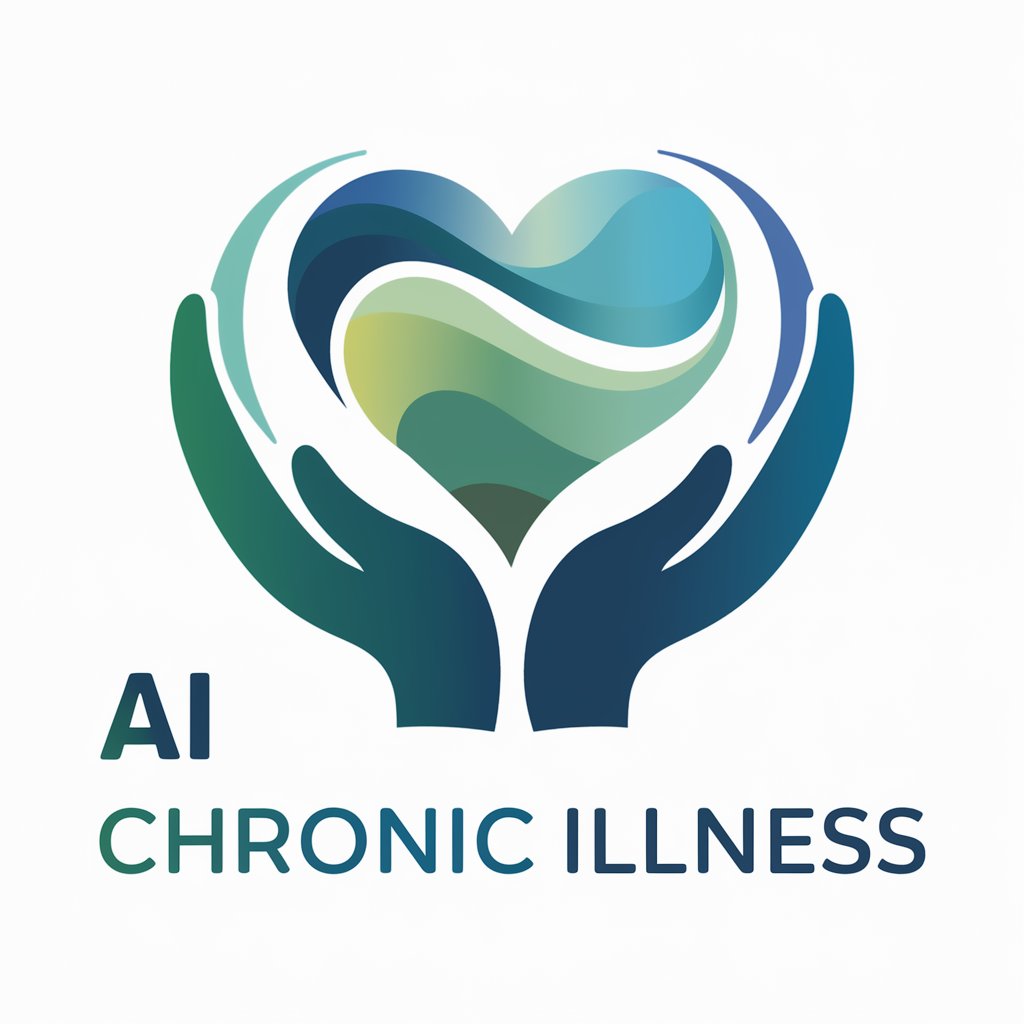
Chronic Illness Companion - Chronic Illness Support

Empowering your health journey with AI.
Help me create a medication schedule for my prescriptions.
What are some strategies for managing stress with my condition?
Can you find some reliable resources about my illness?
I'm having a tough day, can we talk about coping strategies?
Get Embed Code
Understanding Chronic Illness Companion
Chronic Illness Companion is designed as an auxiliary tool aimed at providing support to individuals living with chronic illnesses. Its primary goal is to assist in the everyday management of the illness, focusing on medication schedules, symptom tracking, lifestyle adjustments, and emotional support. For instance, it can help users remember when to take their medications, identify patterns in their symptoms that may suggest triggers, and offer advice on dietary or exercise modifications. Additionally, it serves as an empathetic partner, offering coping strategies for the emotional and psychological challenges of chronic illness. An example scenario could be a user struggling with the complexities of managing multiple medications; Chronic Illness Companion could help create a tailored schedule, reminding the user when each dose is due, thereby reducing the stress and potential errors in medication management. Powered by ChatGPT-4o。

Core Functions of Chronic Illness Companion
Medication Management
Example
Creating personalized medication schedules and reminders.
Scenario
A user with rheumatoid arthritis needs to take several medications at different times of the day, some with food and some without. Chronic Illness Companion can set up a custom schedule with reminders for each medication, including notes on how to take them, thus ensuring adherence to the treatment plan.
Symptom Logging
Example
Tracking symptoms and identifying patterns or triggers.
Scenario
A user with irritable bowel syndrome (IBS) logs daily symptoms, food intake, and stress levels. Over time, Chronic Illness Companion helps identify that symptoms flare up following consumption of specific foods or during periods of high stress, aiding in lifestyle adjustments to manage the condition.
Lifestyle Adjustments
Example
Recommending changes in diet, exercise, and stress management techniques.
Scenario
A user with type 2 diabetes is advised on dietary adjustments to help manage blood sugar levels, alongside suggestions for gentle exercises suitable for their condition. Stress management techniques like mindfulness and meditation are also recommended to help control blood sugar spikes related to stress.
Emotional Support
Example
Providing empathetic responses and coping strategies.
Scenario
A user feeling overwhelmed by the diagnosis of a chronic illness receives supportive guidance and strategies to cope with anxiety and depression, fostering a positive mindset and resilience in the face of health challenges.
Who Benefits from Chronic Illness Companion?
Individuals with Newly Diagnosed Chronic Conditions
Those recently diagnosed often face a steep learning curve in managing their condition. Chronic Illness Companion can simplify this transition by offering structured guidance and support, helping users to quickly adapt to new routines and healthcare needs.
Experienced Patients Seeking Enhanced Management
Patients well-versed in their condition but looking to optimize their management routine can benefit from the personalized assistance and new strategies provided, potentially uncovering overlooked aspects of their health.
Caregivers and Family Members
Caregivers play a crucial role in the management of chronic illnesses. Chronic Illness Companion can assist them in organizing care tasks, understanding the condition better, and providing emotional support to both themselves and the individuals they care for.

Using the Chronic Illness Companion
Start with a Free Trial
Begin by visiting yeschat.ai to access a free trial of the Chronic Illness Companion, with no login required and without the need for ChatGPT Plus.
Define Your Needs
Identify the specific aspects of your chronic illness management where you seek assistance, such as medication tracking, symptom logging, or lifestyle adjustments.
Engage with the Companion
Use the chat interface to input your queries or concerns. The system is designed to understand and respond to a wide range of chronic illness management questions.
Utilize Features
Take advantage of the tool's features like medication management, symptom tracking, lifestyle advice, emotional support, and resource sharing for comprehensive support.
Review and Adjust
Regularly review the information and advice provided. Adjust your queries as needed to refine the support you receive, ensuring it aligns with your evolving health needs.
Try other advanced and practical GPTs
Picky Eater Pal
Tailored Eats, Powered by AI

Mysteries Unveiled
Unraveling mysteries with AI power.

GPTBoss | Dominic Chambers
Innovate and solve creatively with AI.

GPTBoss | Sarah Currie
Enhancing Mobile Development with AI Expertise

Fantasy World Creator
Craft Your World with AI-Driven Imagination

Task Planning Versatile Expert
Streamline Projects with AI-Powered Planning

Christian Music Finder
Discover Christian Music with AI Precision

PokémonMaster
Unleash the power of Pokémon knowledge.

Circle Icon Designer
Crafting vibrant gaming achievements into icons.

Cardinal Connoisseur
Unlock the Cardinal Spirit with AI

TranslateZ
Bridging languages with AI-powered ease

Andrew Darius' Motivational Speaker
Empower Your Journey with AI-Driven Motivation

Chronic Illness Companion FAQs
How does the medication management feature work?
The medication management feature assists users in tracking their medication schedules, dosages, and potential side effects. Users can input their medication details and receive reminders and logs to help manage their intake.
Can Chronic Illness Companion help identify triggers for my symptoms?
Yes, by logging your symptoms and their occurrences over time, the Companion can help you identify patterns or potential triggers. This information can be valuable in managing your condition more effectively.
What kind of lifestyle adjustments does the tool suggest?
Based on your input, the Companion can suggest lifestyle changes such as diet modifications, exercise routines suited to your condition, and stress management techniques to help manage your illness.
How can the tool provide emotional support?
The Companion offers empathetic responses and coping strategies for dealing with the emotional aspects of living with a chronic illness. It can suggest mindfulness exercises, support networks, and ways to manage stress and anxiety.
Where does the tool direct users for reliable information?
The Companion directs users to reliable online resources for further information about their condition, including medical websites, research articles, and support groups, ensuring users have access to accurate and helpful information.





